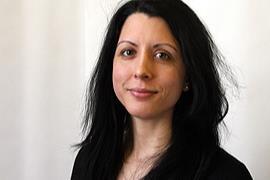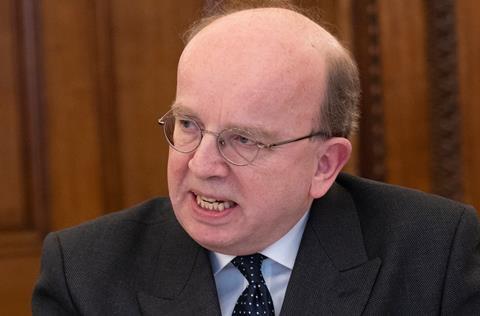It is that time of year when barristers and solicitors recognise the many hours of work done without charge by the legal profession, for the public good.

As Pro Bono Week kicked off, Advocate, the bar’s pro bono charity, presented awards to those whose endeavours went beyond the call of duty.
Catherine Meredith of Doughty Street Chambers won junior pro bono barrister of the year for the months of work she did taking on the cases of eight Afghan journalists seeking relocation to the UK. Her chambers colleague Tatyana Eatwell scooped the international pro bono barrister award for her work over five years in the fight to release the detained Nazanin Zaghari-Ratcliffe, and her efforts following the death of two journalists in South Sudan and Libya.
The pro bono initiative of the year was the Ukraine Advice Project. Backed by a network of 600 immigration barristers and solicitors alike, it has worked on 3,028 cases since the Russian invasion.
Lawyers shortlisted also included a team comprising Annahita Moradi-Balf, Nigel Edwards KC and Haydee Dijkstal of One Pump Court and 33 Bedford Row. They spent more than 200 hours representing an individual detained in Iran, before his eventual release this year.
All of this work has an international flavour. But some of the other awards and nominations were for barristers who had helped clients in England and Wales, whose legal advice and representation should arguably have been funded by legal aid.
Mark Harries from Serjeants Inn won the pro bono KC of the year for his work for clients on cases concerning mental health issues, as well as joint enterprise in the criminal law.
The judges gave a special mention to Abigail Bright of Doughty Street Chambers, who commits to spending 250 hours a year on pro bono cases, including inquests, criminal appeals and judicial reviews.
Also winning a special mention were Joanne Brown and Joanne Porter of 4PB. They took on a four-week fact-finding hearing in a children law case, where the papers ran to 30,000 pages, five medical experts were instructed and the Polish client faced language barriers.
Sophie Cartwright KC received a special mention for her work on behalf of parents whose four-year-old son had died, to overturn an inquest verdict. And Ryan Ross was shortlisted for young pro bono barrister of the year, for his work representing parents in an inquest following the unexpected death of their adult daughter.
As Sir Robin Knowles, the High Court judge and chairman of Advocate, told guests: ‘Whether you are at the start of this profession or you are at the top of it, pro bono is part of being a barrister.’

It is, he said, ‘a badge of the bar’s integrity’ and a sign of its commitment to the public and the public interest, which ‘should be a source of pride in our profession’.
But it cannot be right that these vulnerable clients are left to rely on the largesse of barristers who are willing to work for nothing, in order for them to have someone to advocate on their behalf.
The NHS treats all patients regardless of means; schools educate all children regardless of the combined income of those in their household. However badly they feel that they are paid, doctors, nurses and teachers are not expected to provide their services for nothing.
Many legal aid lawyers already do huge amounts of unpaid work. As criminal barristers have seen, the more work that they have been prepared to do for nothing over the years, the more the government expected them to do.
The government’s assault on civil legal aid reached its zenith with the Legal Aid, Sentencing and Punishment of Offenders Act 2012, which removed public funding from huge areas of law. This left hundreds of thousands of people with housing, debt, family and other legal problems to navigate the courts alone.
It would be naive to think that if lawyers stopped helping pro bono those in need that the government would increase legal aid across the board. But, in those areas where public funding should be made available, especially for families at inquests, should lawyers undertake cases for free?
The oft-quoted mantra tripped off Sir Robin’s lips at the award presentation: ‘Pro bono work is always only an adjunct to, and not a substitute for, a proper system of publicly funded legal services.’
The need is much greater than those 4,618 dedicated barristers who, according to the Bar Council, provided pro bono help over the last year, could ever hope to meet.
No one from the Ministry of Justice was present for the awards.
Speaking at a different event this week, attorney general Victoria Prentis echoed Knowles’ words, stating: ‘We know in government that pro bono is there to complement, but is not a substitute for, a properly functioning legal aid system’.
While she appeared to recognise the increasing need for legal assistance, Prentis said that she and the solicitor general were committed to championing pro bono work.
But let’s not fudge here. The government should commit to funding legal aid properly. This week is a time to celebrate the work of pro bono lawyers but – as with food banks – the profession, the government and the public must not normalise its existence.
Catherine Baksi is a freelance journalist and qualified barrister































7 Readers' comments